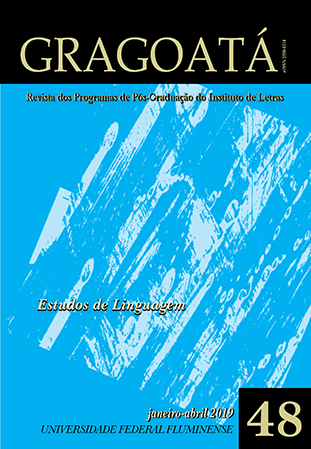Why did creolization happen in the Caribbean and not in Brazil? Social conditionings
DOI:
https://doi.org/10.22409/gragoata.2019n48a33628Keywords:
socioeconomic history of Brazil, pidgins and creole languages, pidginization, creolization, Creole genesis.Abstract
Based on socioeconomic data, this paper seeks to explain why creolization occurred broadly in the Caribbean and did not occur in a representative and lasting way in Brazil. From this perspective, the paper seeks to make some generalizations about the historical formation of the so-called Creoles of the Atlantic and about the very conception of the creole languages. The position that guides this analysis is that, in order for creolization to occur, there must be a rupture in linguistic transmission, which allows a strong reduction and deep restructuring of a second language variety, a pidgin. This pidgin becomes a native language and then gives origin to the Creole language. In order for pidginization to take place, it is necessary that the community of speakers that will develop the pidgin be subjected to a violent process of segregation and isolation, as it happened in the Caribbean, and, apparently, did not happen in Brazil, due to the greater complexity and social arrangements observed in the structure of Brazil when the country was a Portuguese colony. At the end, the paper makes a brief description of linguistics features which distinguish creolization from more slight processes of irregular linguistic transmission, as it happened in Brazil.
Downloads
Downloads
Published
How to Cite
Issue
Section
License
Authors who publish in Gragoatá agree to the following terms:
The authors retain the rights and give the journal the right to the first publication, simultaneously subject to a Creative Commons license CC-BY-NC 4.0, which allows sharing by third parties with due mention to the author and the first publication by Gragoatá.
Authors may enter into additional and separate contractual arrangements for the non-exclusive distribution of the published version of the work (for example, posting it in an institutional repository or publishing it in a book), with recognition of its initial publication in Gragoatá.

Gragoatá is licensed under a Creative Commons - Attribution-NonCommercial 4.0 International.











